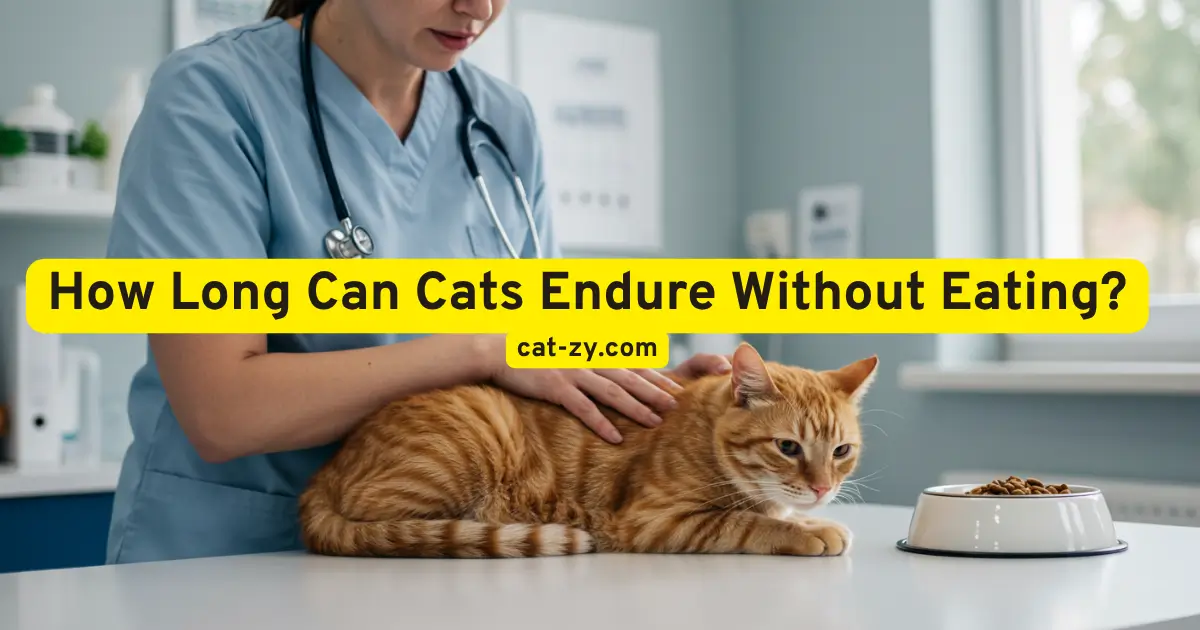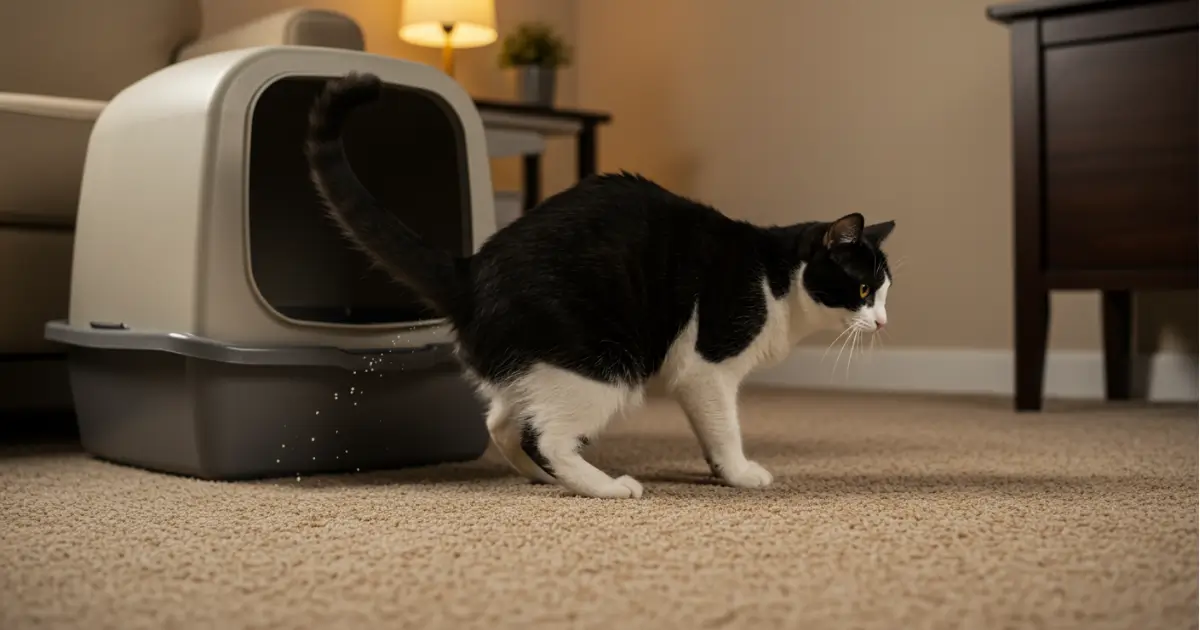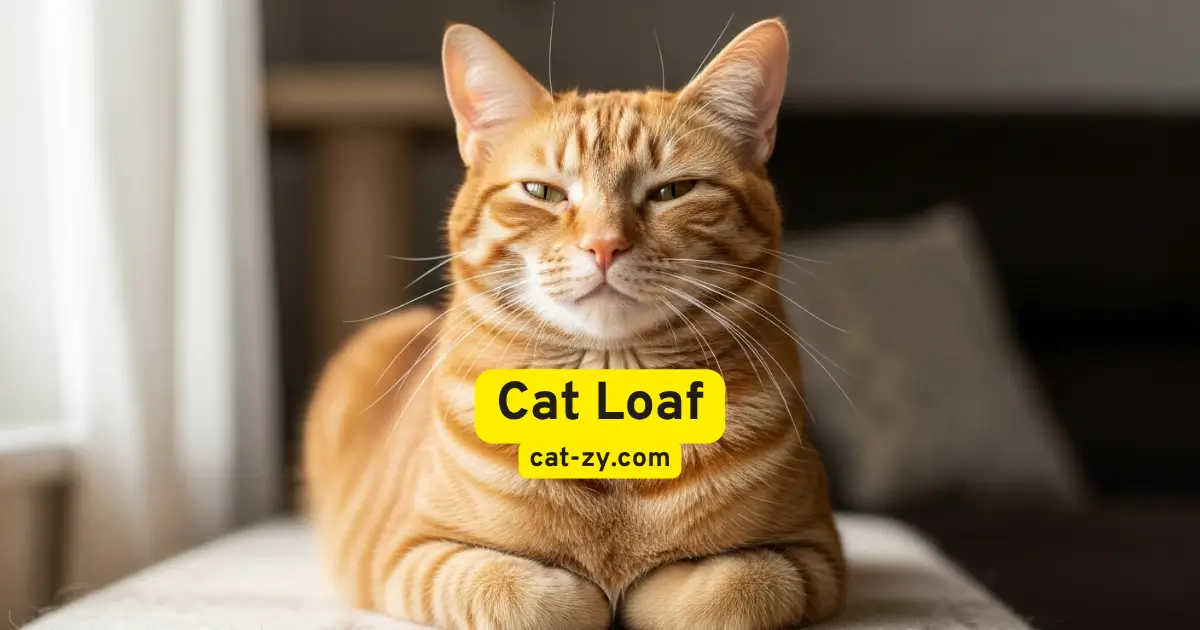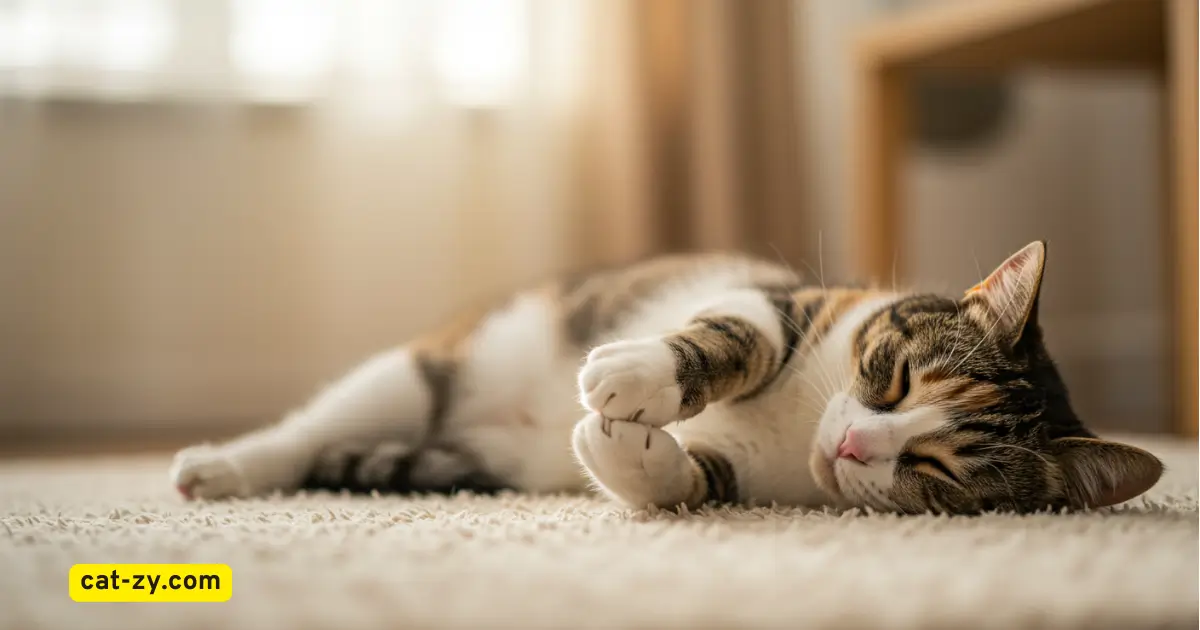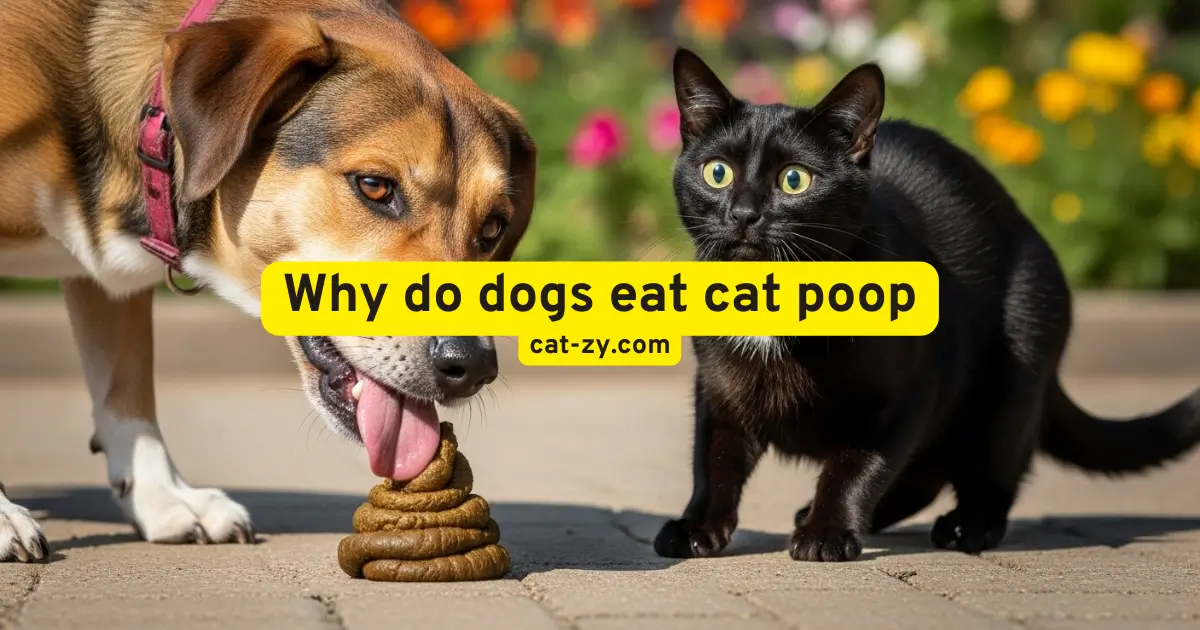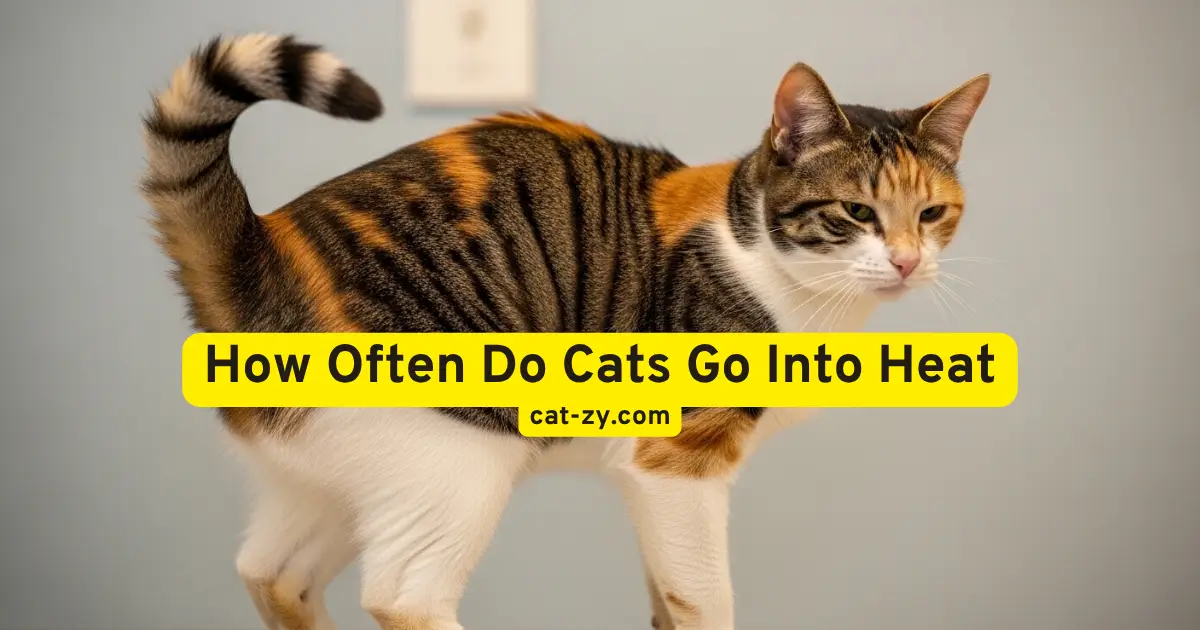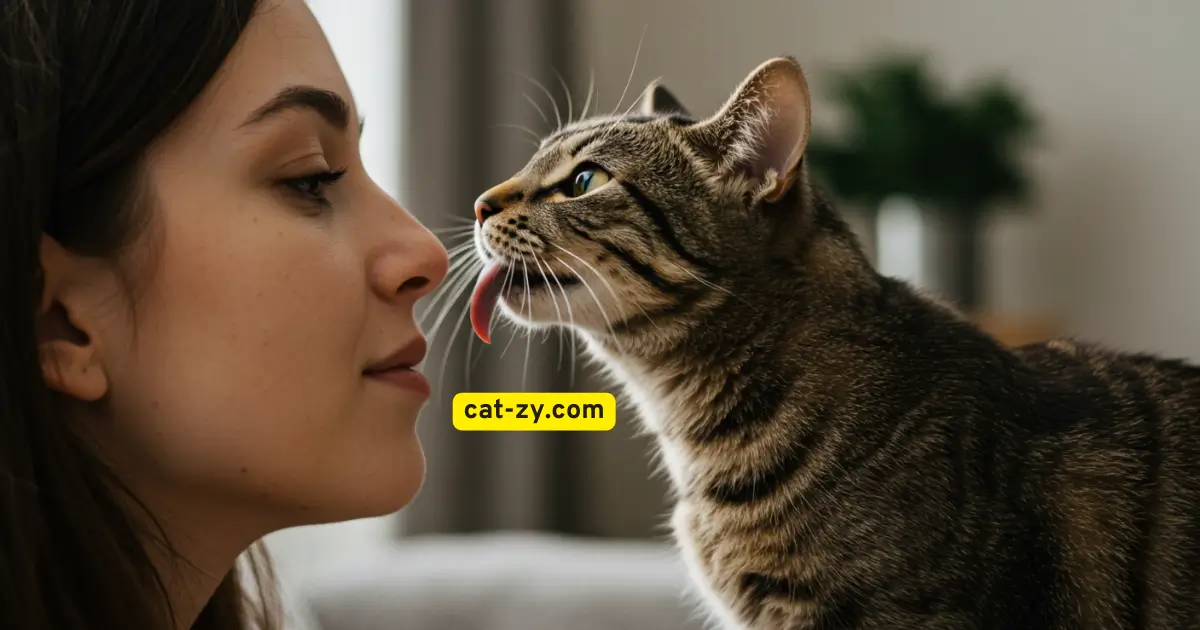How Long Can a Cat Go Without Eating? 7 Devastating Facts
As a cat owner, you’ve probably wondered what happens if your feline friend stops eating. It’s a worrying thought. Cats are known for their independence, but their eating habits need attention.
Feline anorexia can be a sign of a health issue. If ignored, it can cause serious problems. Knowing the risks of your cat’s eating habits is key to their health.
In this article, we’ll look at the shocking facts about how long cats can survive without food. We’ll also talk about how to prevent it. By the end, you’ll know how to keep your cat healthy and happy.
Table of Contents
The Dangers of Feline Anorexia
Feline anorexia is very dangerous and can be life-threatening. If your cat stops eating or drinking, it’s a warning sign. This condition can severely harm your cat’s health. It’s important to know its causes and symptoms.
Why Cats Stop Eating
Cats may stop eating for many reasons. These include dental problems, gastrointestinal issues, or stress. Sometimes, a simple change in their environment or food can cause it. Understanding ‘How long can a cat go without eating‘ helps you recognize when a temporary appetite loss becomes dangerous. It’s key to find the real reason to help them.
If your cat is not eating, watch them closely. If the problem doesn’t go away, see a vet.
Early Warning Signs
Spotting early signs of feline anorexia is critical. Look for weight loss, lethargy, and less water intake. If your cat eats less or drinks less, check it out.
Knowing how long cats can go without eating is also important. Prolonged fasting can harm their health a lot. If worried about your cat’s eating, talk to a vet who can assess ‘How long can a cat go without eating‘ in your pet’s specific situation.
How Long Can a Cat Go Without Eating: The Critical Timeline
Cats can go without food for a while, but the risks grow fast. It’s key to act quickly. Knowing the timeline helps you get your cat the care they need when they stop eating.
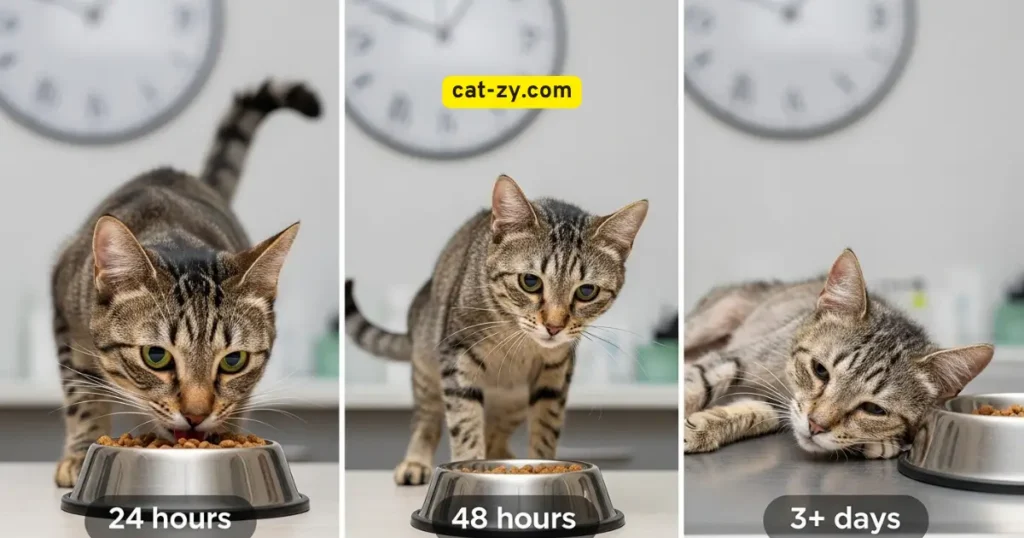
The 24-Hour Mark
In the first 24 hours, your cat might not be in big trouble yet. But it’s a sign something’s off. Watch their behavior and health closely during this time. If they show signs of sickness like vomiting or being very tired, get vet help.
The 48-Hour Danger Zone
After 48 hours without food, your cat’s health risks jump up a lot. Liver problems can start because of not getting enough nutrients. This could lead to hepatic lipidosis, a serious issue. At this point, you should talk to a vet to find out why your cat won’t eat.
Beyond 3 Days: Life-Threatening Territory
If your cat doesn’t eat for more than 3 days, it’s very serious. Not eating for a long time can cause big health problems. Your vet needs to see your cat right away to stop these problems from getting worse. They might suggest appetite stimulants or nutritional support.
Knowing this timeline helps you act fast to keep your cat healthy. If you’re worried about your cat’s eating, get vet advice right away.
Shocking Fact #1: Cats Can Develop Hepatic Lipidosis Quickly
Cats can quickly get hepatic lipidosis if they stop eating. Hepatic lipidosis, or fatty liver disease, is a serious condition. It needs immediate attention.
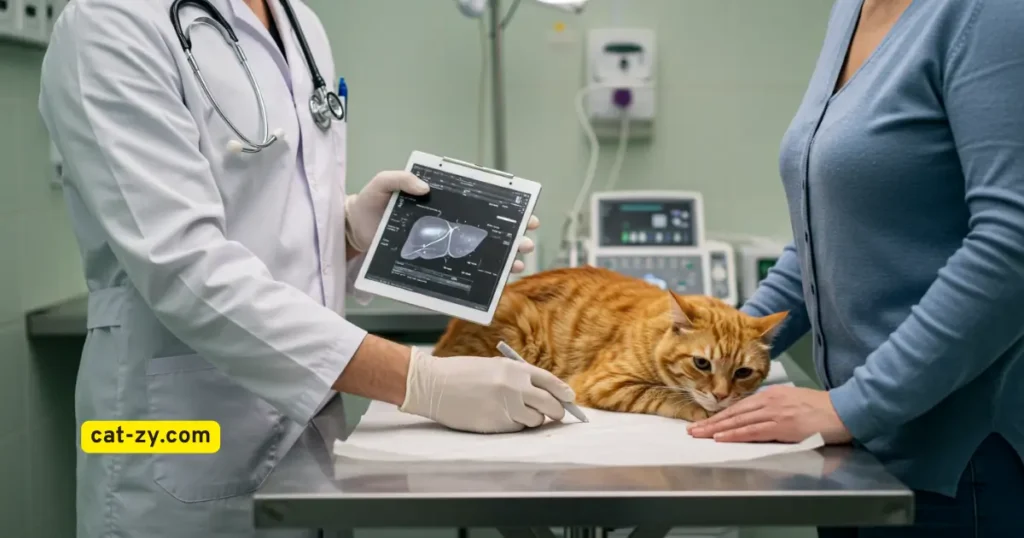
What Is Fatty Liver Disease?
Fatty liver disease occurs when excessive fat accumulates within the liver’s cellular structure. This stops the liver from working properly. Cats often get this when they don’t eat much, which is why knowing ‘how long can a cat go without eating‘ is crucial for prevention.
Normally, the liver breaks down fat. But if a cat doesn’t eat, the liver can’t do its job. This leads to fat building up in the liver. It can cause health problems, from mild to severe.
How Fast Can It Develop
Hepatic lipidosis can start quickly in cats. Even a short time without eating can cause it. The exact time depends on the cat’s health, age, and diet.
It’s important for cat owners to know the risks. If your cat won’t eat, get vet help fast. This can prevent hepatic lipidosis and other problems related to how long can a cat go without eating or drinking.
Shocking Fact #2: Water Deprivation Is More Dangerous Than Food Deprivation
Water is key to your cat’s health. Without it, they can get very sick fast. Cats always need fresh water to stay healthy.
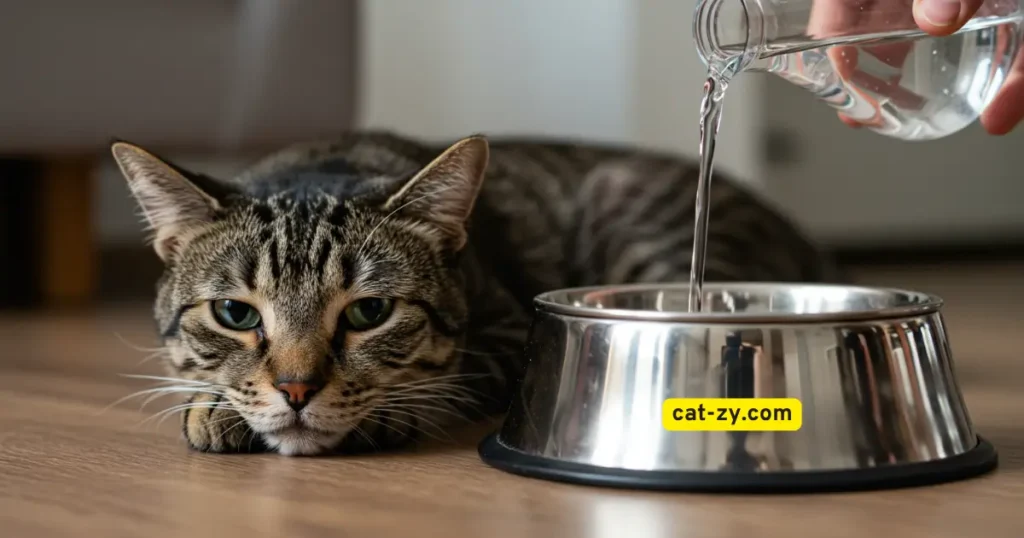
How Long Can a Cat Go Without Water
Cats can’t go without water for as long as food. They can last about 3 to 5 days without it. But dehydration can start in just 24 hours, mainly in hot weather or if they’re very active.
Monitor your cat’s daily water consumption closely. If they’re not drinking enough, it might mean they’re sick and need a vet.
Signs of Dehydration in Cats
It’s important to know when your cat is dehydrated. Look for dry gums, sunken eyes, being very tired, and skin that doesn’t bounce back. If you see these signs, give your cat water and see a vet right away.
Dehydration can cause big problems like kidney damage and heatstroke. Make sure your cat always has clean, fresh water to avoid dehydration.
Shocking Fact #3: Obese Cats Are at Higher Risk When Not Eating
Obese cats face big challenges when they stop eating. Their bodies are already under a lot of stress. Stopping to eat can lead to serious health problems.
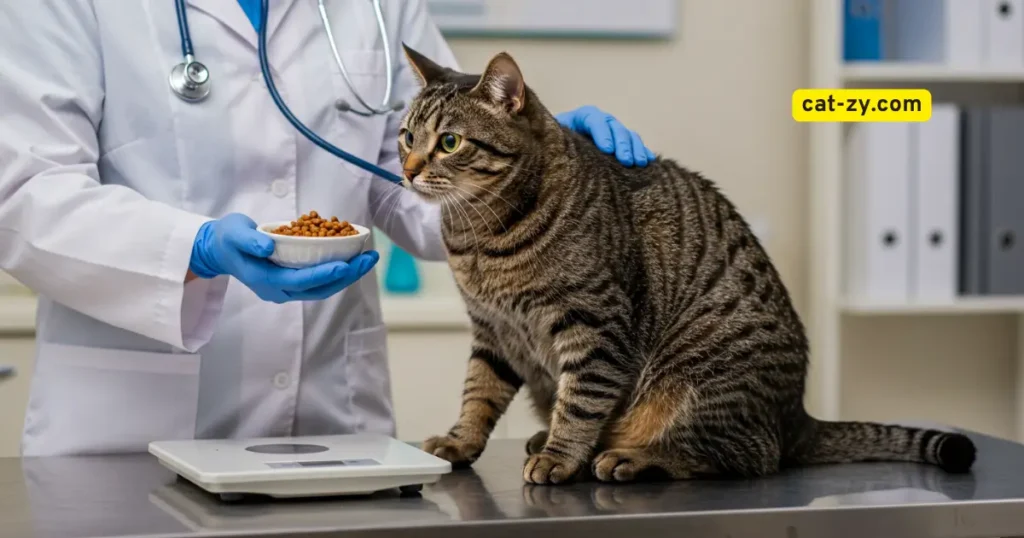
The Paradox of Fat Cats and Starvation
It might seem odd that obese cats are at risk when they stop eating. They have a lot of fat. But, this fat can cause a serious condition called hepatic lipidosis, or fatty liver disease, if they don’t eat.
Hepatic lipidosis happens when fat builds up in the liver. It can cause liver failure. If your cat is obese and hasn’t eaten for a couple of days, like my cat has not eaten for 2 days, you need to get vet help right away.
Weight-Related Complications
Obese cats that stop eating face other serious problems. Their extra weight strains their organs. When they stop eating, their body starts breaking down fat and muscle for energy.
This can lead to organ failure. Obesity is also linked to diabetes, arthritis, and heart disease in cats. These conditions can get worse if they don’t eat. It’s very important to make sure your cat starts eating again if your cat is not eating or drinking.
Shocking Fact #4: Cats’ Bodies Begin Self-Destructing After 24 Hours Without Food
After 24 hours without food, your cat’s body starts a self-destruct process. This can lead to serious health issues. At first, the body uses stored glucose for energy. But when glucose runs out, it starts breaking down fat and muscle.
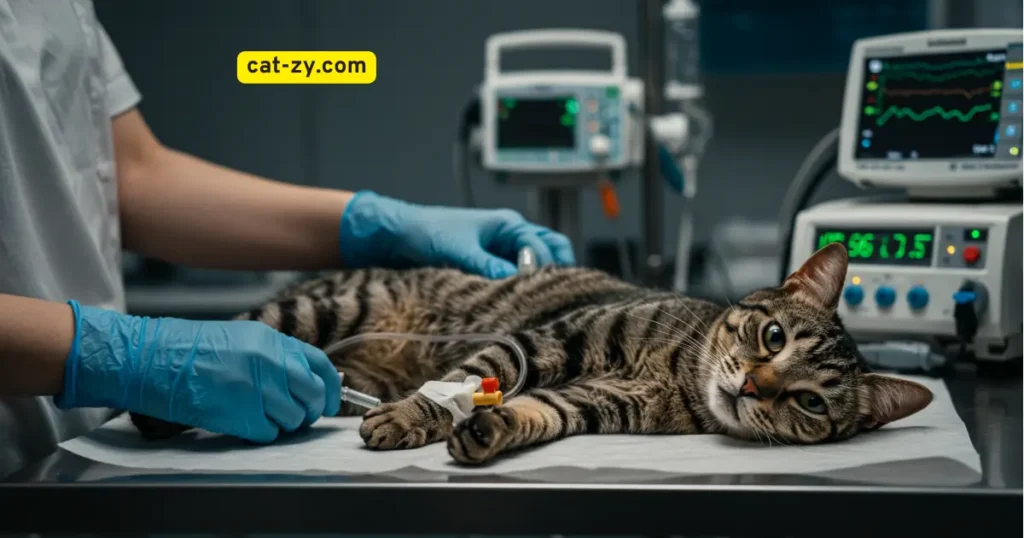
The Metabolic Process During Starvation
When cats don’t eat, their metabolism changes a lot. First, the liver turns stored glycogen into glucose to keep blood sugar levels up. When glycogen is gone, the body starts breaking down fat to make ketones for energy.
This metabolic state, called ketosis, can cause many problems. It can change blood chemistry and affect organ function. The production of ketones can also lead to ketoacidosis, making the blood too acidic.
Organ Systems Affected First
The liver and kidneys are the first to be affected by starvation in cats. The liver works hard to metabolize fat, which can cause hepatic lipidosis. The kidneys have to filter out fat byproducts, which can strain them and cause damage over time.
Cat owners need to understand these changes. Knowing the signs of starvation and getting vet help early can make a big difference. It can help cats that have stopped eating.
Shocking Fact #5: Senior Cats Face Greater Risks When Not Eating
Senior cats that don’t eat can face serious and even life-threatening problems. As cats get older, their bodies don’t process nutrients as well. It’s very important for owners to watch how much their senior cats eat.
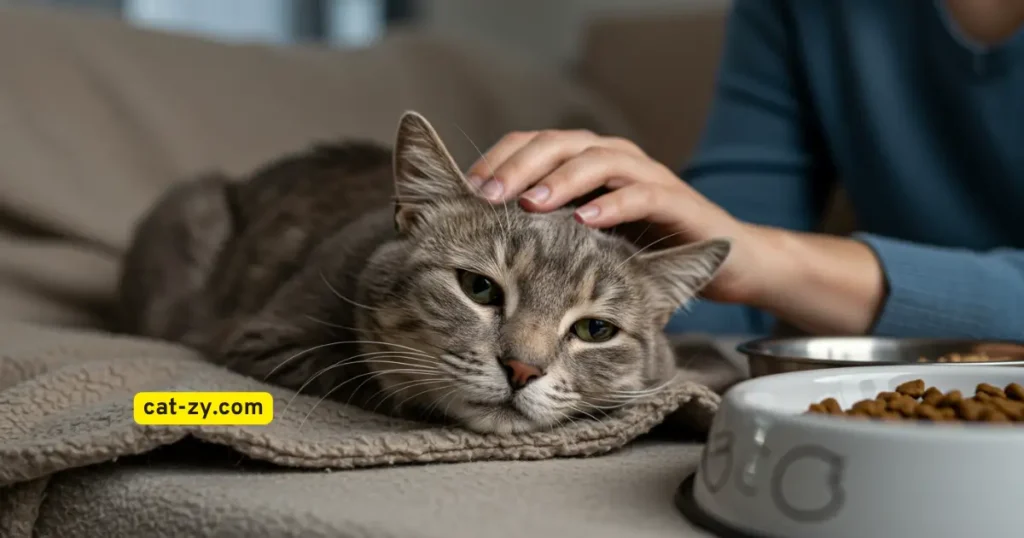
Age-Related Vulnerabilities
Senior cats are more likely to get sick because of their age. Their immune systems are weaker, and they might have health problems that get worse if they don’t eat. For example, older cats often have kidney disease or dental issues that can make them lose their appetite. Keeping an eye on their food and health is key to stopping these problems from getting worse, especially since ‘how long can a cat go without eating’ decreases significantly with age.
Special Considerations for Elderly Cats
Elderly cats need extra care when they stop eating. Owners should look out for signs of malnutrition and dehydration, like weight loss, dry skin, and tiredness. It’s important to talk to a vet to figure out the best steps and to check for any hidden health issues. Making sure they have a cozy and calm place to eat can help. Giving them their favorite foods and a warm, quiet spot to eat can really help.
Shocking Fact #6: Kittens Can Only Survive Hours Without Food
Kittens need to eat often because their bodies grow fast. They have a high metabolism and need lots of nutrients.
Adult cats can go longer without food. But kittens are different. They are growing and developing important organs.
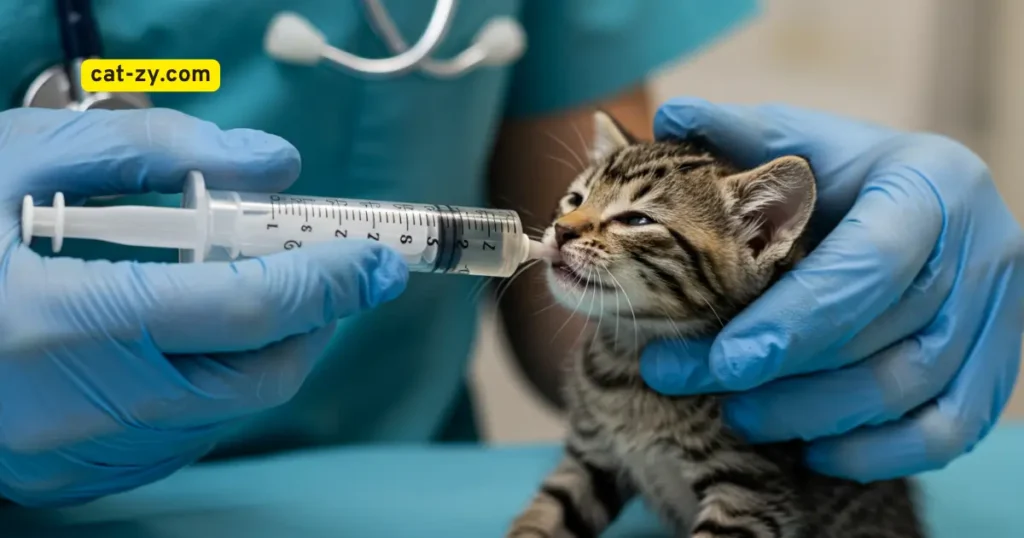
Why Kittens Need Frequent Feeding
Kittens eat often because they grow fast. Unlike adult cats, kittens are in a stage of rapid development. They need lots of proteins, vitamins, and minerals.
Kittens should eat 3 to 4 times a day until they are six months old. This helps them grow and get the nutrients they need.
Emergency Care for Non-Eating Kittens
If your kitten isn’t eating, get vet help right away. If your kitten hasn’t eaten for a short time, it’s a big worry. Dehydration and hypoglycemia can be deadly.
The vet might give fluids and nutrients. They will also check for health problems. Knowing how long cats can go without eating is key. But for kittens, it’s much shorter. Quick action can help a non-eating kitten a lot.
Shocking Fact #7: Stress Can Cause Extended Food Refusal
Stress can make cats stop eating or drinking. This can lead to serious health problems. Stress changes how cats feel and behave, affecting their appetite.
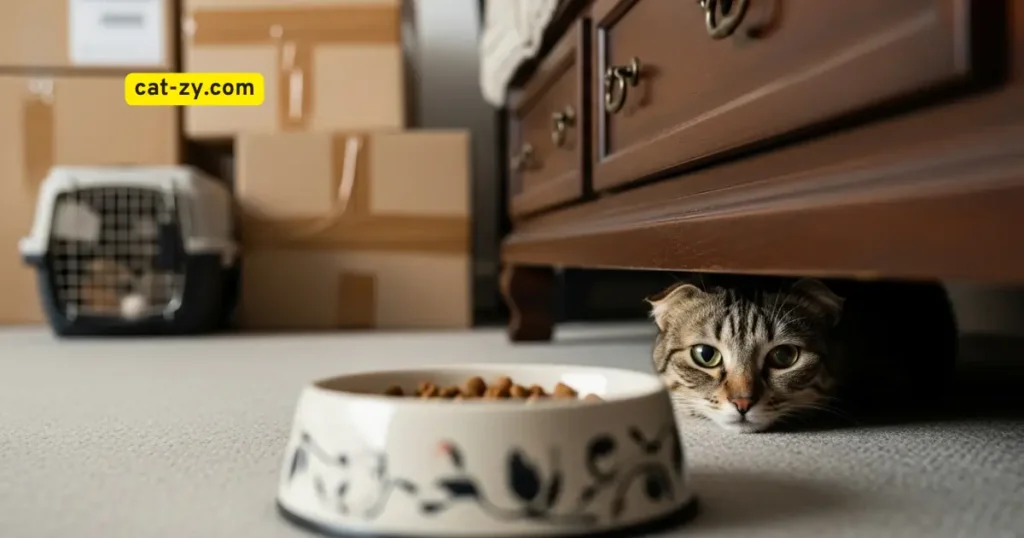
Common Stress Triggers
Many things can stress out cats. Changes like moving or new pets can be big stressors. Even small changes, like rearranging furniture or having guests over, can cause significant stress. Other causes include fights with other pets, boredom, or health problems. Many owners ask ‘How long can a cat go without eating’ during stressful periods before intervention is needed?
Breaking the Stress-Anorexia Cycle
To help your stressed cat eat, find and fix the stress causes. Creating a calm environment is key. This means giving them a quiet spot to eat or using pheromone diffusers to calm them. It’s also important to keep their water fresh, as dehydration can happen fast.
If your cat won’t eat or drink, see a vet. They can check for health problems and help manage stress. Remember, cats can survive without food for a while, but dehydration is a bigger risk. Knowing how long can a cat go without water is vital to prevent serious health issues.
How to Encourage Your Cat to Eat
If your cat isn’t eating, it’s key to find out why. Cats can be picky due to their surroundings and health. A lack of appetite might signal a bigger problem.
To get your cat to eat, make their food more tempting. Simple changes in how you serve their meals can help.
Food Warming and Texture Modifications
Warming their food can make it smell better and taste more appealing. Some cats like their food at room temperature or a bit warm. You can also change the texture by adding water or trying different foods. These simple changes can prevent you from worrying about how long can a cat go without eating.
Appetite Stimulants and Special Diets
Your vet might suggest appetite boosters. Some cats need special diets for their health or taste preferences.
Creating a Stress-Free Eating Environment
Cats are very sensitive to stress, which affects their appetite. Make sure their food area is quiet and comfy. Keep it away from litter boxes and other pets to reduce stress.
By making these changes, you can make eating easier for your cat. If they won’t eat, see a vet to check for health issues.
When to Seek Veterinary Care for a Cat Not Eating
Knowing when your cat needs a vet is key. If your cat hasn’t eaten for 2 days, it’s a warning sign. Cats can get very sick fast if they stop eating.
Emergency Situations
If your cat shows signs of dehydration, like a dry mouth or being very tired, get vet help right away. Also, watch for vomiting, diarrhea, or big changes in behavior. If your cat isn’t eating or drinking, it’s a big warning sign.
What to Expect at the Vet
At the vet, they’ll check your cat and might do tests to find out why it’s not eating. Tell the vet about your cat’s eating habits and health. They might suggest appetite stimulants or a special diet to help.
Conclusion
As a cat owner, knowing how long your cat can go without eating is key. This knowledge helps keep them healthy and happy. The 7 shocking facts in this article about how long can a cat go without eating show the dangers of feline anorexia and why watching your cat’s eating is important.
Cats can get very sick if they don’t eat for a long time. They might get hepatic lipidosis, a serious liver problem. Also, not drinking enough water can lead to severe dehydration quickly. Knowing how long your cat can survive without water or food helps you act fast in emergencies.
Being aware of feline anorexia risks lets you help your cat eat more. If your cat’s eating habits change or they seem sick, see a vet right away. They can give you the best advice.
Stay informed and watch your cat closely to keep them healthy and happy. If you notice any odd behavior, act quickly. This way, your cat can live a long, joyful life.
FAQ
How long can a cat go without eating?
Cats can survive for different lengths of time without food. This depends on their age, health, and body condition. A healthy adult cat can usually go 1-2 weeks without eating. But, this is risky.
How long can cats go without food?
Cats can go without food for varying periods. But the longer they don’t eat, the higher the risk of serious health problems. Hepatic lipidosis is one such risk.
How long can a cat go without water?
Cats are more at risk of dehydration than starvation. They can survive 3-4 days without water. But dehydration can start in as little as 24 hours.
How long can cats go without eating before it’s a problem?
Cats can face serious health issues if they don’t eat for 24-48 hours. The exact time depends on their age, health, and body condition.
My cat has not eaten for 2 days. What should I do?
If your cat hasn’t eaten for 2 days, seek veterinary care. Your vet can check your cat’s health and advise on what to do next.
What are the signs of dehydration in cats?
Dehydration signs in cats include dry mouth, dark urine, and decreased appetite. They may also seem lethargic and have sunken eyes. If you think your cat is dehydrated, get vet help quickly.
Can stress cause a cat to stop eating?
Yes, stress can make a cat stop eating. Stressors include changes in environment, new pets or people, and medical issues. Finding and fixing the stress cause can help your cat eat again.
What can I do to encourage my cat to eat?
Try warming your cat’s food, changing its texture, or using appetite stimulants. Also, make sure their eating area is stress-free. If your cat won’t eat, talk to your vet for specific advice.

